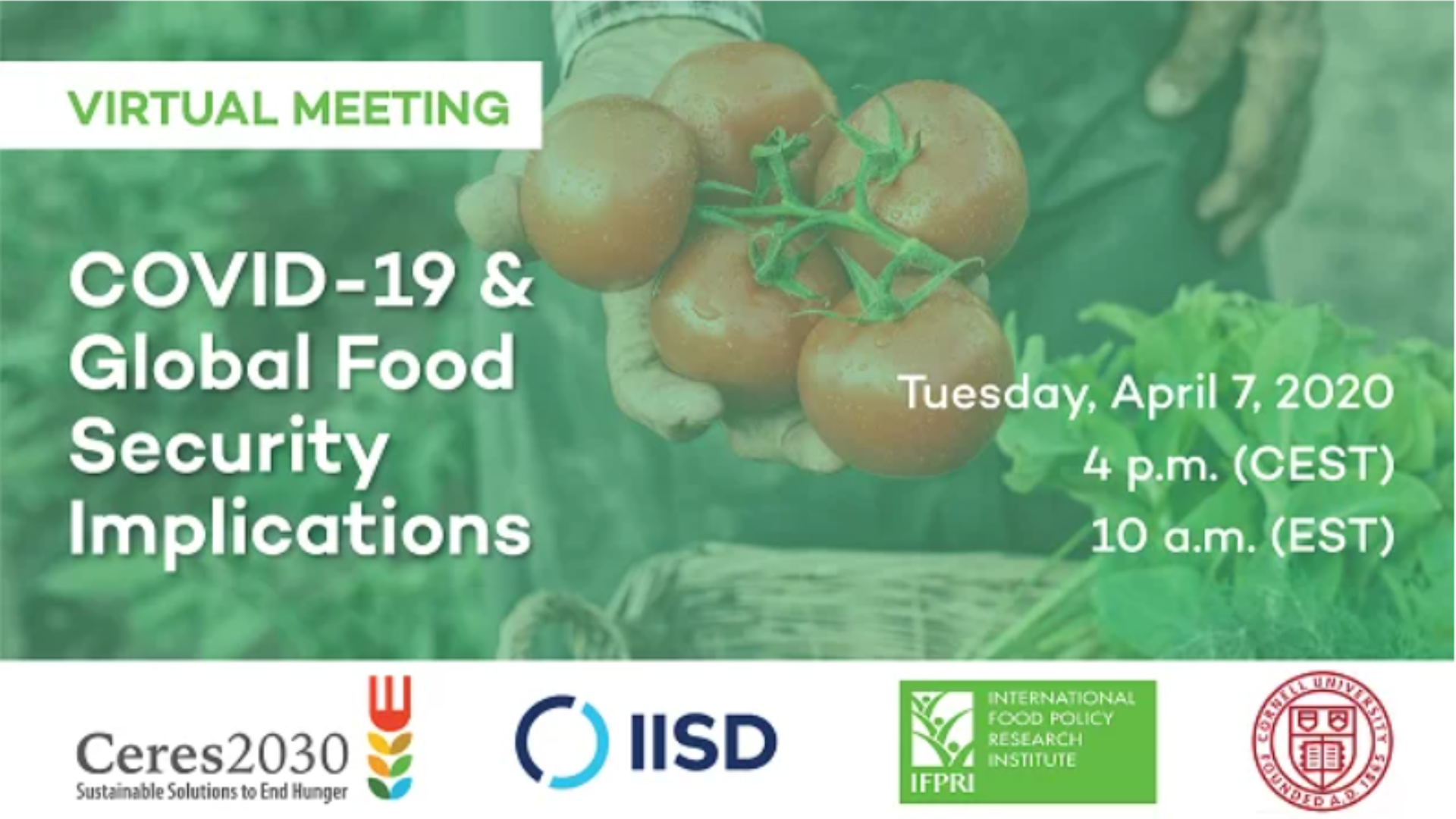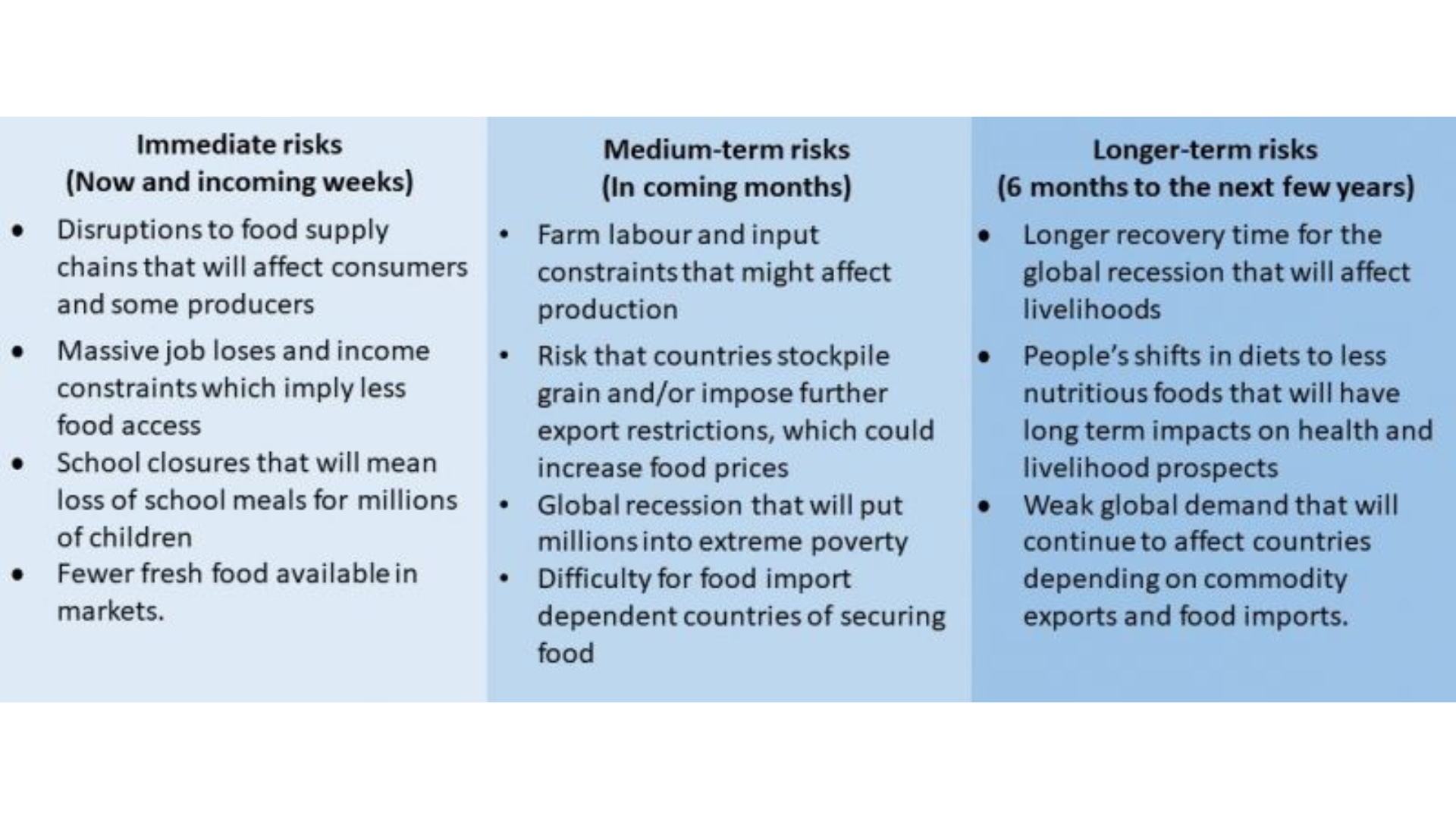As the lockdowns continue worldwide and the commentaries on food security and COVID-19 start to come in, the Ceres 2030 initiative held an online reflection on the implications of the COVID -19 pandemic on global food security on 7 April 2020. The virtual meeting was convened by the International Institute for Sustainable Development (IISD), the International Food Policy Research Institute (IFPRI), and Cornell University.
Links

This virtual meeting aimed to look at what can be learned, what trends are to be expected, and what is still unknown regarding the pandemic. The meeting also discussed the implications of COVID-19 for agriculture and food systems, now and into the future.
This interactive online reflection which allowed participation via digital conferencing technology had an overwhelming response with over 500 people registering for it. The speakers were Christophe Bazivamo from the East African Community (EAC), Jennifer Clapp from the University of Waterloo and High-Level Panel of Experts on Food Security and Nutrition (HLPE) for the Committee on World Food Security (CFS) as well as David Laborde, International Food Policy Research Institute (IFPRI). The online reflection was facilitated by Carin Smaller, IISD.
David Laborde discussed the direct and indirect macroeconomic impacts of the pandemic to global food security. Notably, he cited economic recession and income losses across households that could result in limited access to food commodities. He further noted that unlike other past economic crises, the Covid -19 pandemic is likely to affect everyone albeit at different levels from producer to consumers and could result in significant increase of poverty. Laborde called for more information and evidences for better decision-making and informing behaviours.
Jennifer Clapp highlighted a range of food security risks associated with Covid- 19. She categorised the risks into three sub-categories: Immediate risks, medium term and longer term. According to Clapp, the foreseen food security risks highlighted under each category are as follows:

Christophe Bazivamo explained that for East Africa Community priority has been given to curbing the spread of the pandemic in the region and this has seen a series of measures including lock-downs, closure of schools, postponement of meetings and conferences. These measures continue to pose serious threats to food security including:
He further emphasized that the interaction of the COVID-19 with the current locust invasion problem in the region is likely to lead to massive food insecurity in the region.
Michael Fakhri, the newly appointed United Nation Special Rapporteur on the Right to Food, stated that ever since the 2008 food crisis, the international trade architecture was proved to some degree inadequate when dealing with food security. This pandemic has resulted not only to new issues, but it also continues to exacerbate existing problems. He brought on board an institutional perspective into the discussion by proposing the need for more appropriate forums to further discuss food security issues and international trade.
